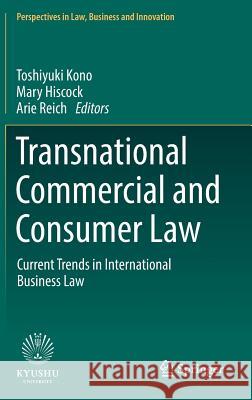Transnational Commercial and Consumer Law: Current Trends in International Business Law » książka
topmenu
Transnational Commercial and Consumer Law: Current Trends in International Business Law
ISBN-13: 9789811310799 / Angielski / Twarda / 2018 / 225 str.
Kategorie:
Kategorie BISAC:
Wydawca:
Springer
Seria wydawnicza:
Język:
Angielski
ISBN-13:
9789811310799
Rok wydania:
2018
Wydanie:
2018
Ilość stron:
225
Waga:
0.51 kg
Wymiary:
23.39 x 15.6 x 1.42
Oprawa:
Twarda
Wolumenów:
01
Dodatkowe informacje:
Wydanie ilustrowane











